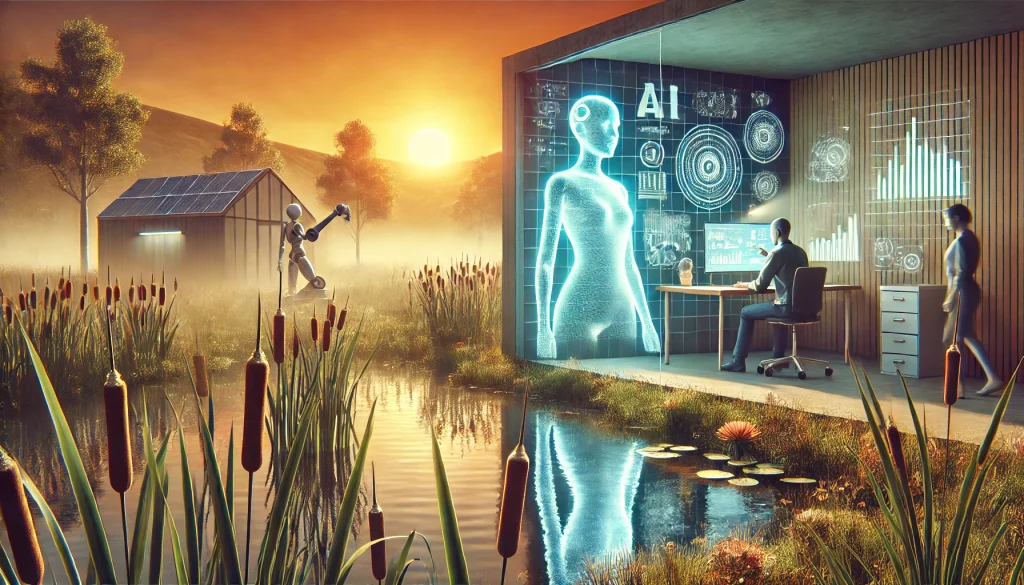
AI and Jobs: Navigating the Next 5 Years and Beyond
Artificial Intelligence (AI) is no longer a distant concept confined to futuristic movies. It’s here, reshaping industries, enhancing productivity, and stirring concerns about job security. As AI tools become integral to business processes, questions loom: Will AI take my job? What roles will thrive or vanish? How can I prepare for this shift? This article explores AI’s transformative impact on the job market over the next five years and provides practical strategies to stay ahead.
A Historical Perspective on Technology and Jobs
History has shown us that technological advancements disrupt, but they also create opportunities. During the Industrial Revolution, machines replaced skilled artisans but gave rise to factory jobs. Similarly, the computer age rendered roles like typists obsolete while birthing the IT sector. AI is no different—it transforms jobs by automating repetitive tasks, creating demand for new skill sets, and elevating human roles to focus on creativity, strategy, and collaboration.
However, the speed of AI’s evolution is unprecedented. According to Grand View Research, the global AI market will grow from $279 billion in 2024 to $1.81 trillion by 2030. This “exponential transformation” will reshape industries faster than past revolutions.
Jobs at Risk: Who’s Vulnerable?
AI excels in automating repetitive, predictable tasks. Here’s a snapshot of roles most at risk:
- Administrative and Clerical Jobs: AI systems like Optical Character Recognition (OCR) streamline data entry. Scheduling tools like Clara eliminate manual coordination.
- Customer Service Representatives: Chatbots and AI assistants, capable of 24/7 support, are replacing traditional call center roles. By 2027, Gartner predicts most customer interactions will involve AI.
- Financial Analysts and Accountants: With AI tools analyzing vast datasets, assessing risks, and predicting trends, 30% of tasks in financial roles could be automated by 2025.
- Retail Workers and Cashiers: Self-checkout systems and AI-driven inventory management are making traditional retail roles redundant.
- Transportation and Logistics Workers: Autonomous vehicles and drones threaten to displace drivers and delivery personnel.
Adaptation: The Key to Staying Relevant
The future isn’t about competing with AI—it’s about leveraging it. Here’s how you can safeguard your career:
- Learn AI Basics: Familiarity with AI concepts like machine learning, natural language processing, and robotics can provide an edge. Online platforms like Coursera and Udemy offer beginner-friendly courses.
- Master Data Literacy: AI thrives on data. Understanding data analysis tools like Excel, SQL, and Power BI can position you as an asset in any industry.
- Develop Soft Skills: Creativity, emotional intelligence, and critical thinking remain irreplaceable. AI might process data, but humans excel at interpreting it and making nuanced decisions.
- Embrace Lifelong Learning: The fast-paced evolution of AI demands adaptability. Stay curious, attend workshops, and explore new certifications to remain competitive.
- Use No-Code AI Tools: Platforms like DataRobot or H2O.ai allow non-programmers to harness AI’s power. These tools democratize AI, making it accessible to professionals across fields.
The Bright Side: Jobs AI Will Create
AI isn’t just replacing jobs; it’s creating new ones. According to the World Economic Forum, AI will generate 97 million roles by 2025. Emerging opportunities include:
- AI Specialists and Data Scientists
- Ethical AI Consultants
- Human-AI Collaboration Facilitators
- AI-Driven Content Creators
Challenges to Address
While promising, AI’s rise isn’t without challenges:
- Economic Inequality: Low-income and rural communities, with limited access to technology, risk being left behind. Governments and companies must prioritize equitable training programs.
- Bias and Fairness: AI systems mirror their training data, which can perpetuate societal biases. Transparent, ethical AI development is critical.
- Job Displacement Anxiety: A 2024 survey found that 60% of workers fear losing their jobs to AI. Employers must provide mental health support and retraining opportunities.
Future-Proofing at an Organizational Level
Businesses play a pivotal role in this transition:
- Upskilling and Reskilling Initiatives: Employers should invest in training programs to help workers adapt.
- Ethical AI Deployment: Transparent AI integration builds trust and ensures fairness.
- Human-AI Collaboration Models: Design roles that blend human intuition with AI efficiency.
Closing Thoughts
AI is here to stay, and its impact on jobs will be profound. The question isn’t whether AI will replace roles, but how we’ll adapt to this new reality. With proactive learning, ethical deployment, and a focus on collaboration, AI can elevate human potential rather than diminish it.
Are you ready to embrace this future? How do you see AI reshaping your career? Share your thoughts in the comments below.
“AI isn’t replacing jobs wholesale—it’s transforming them.”


